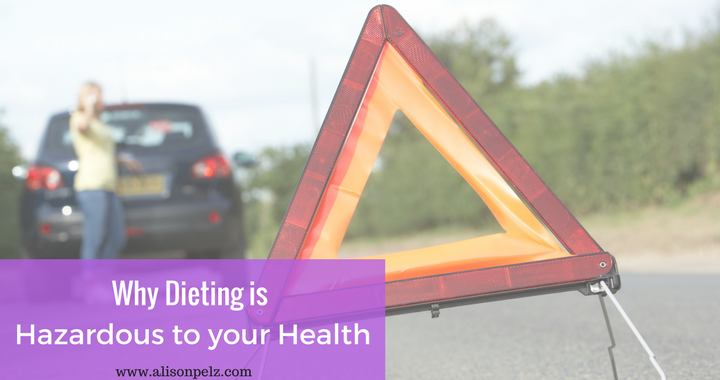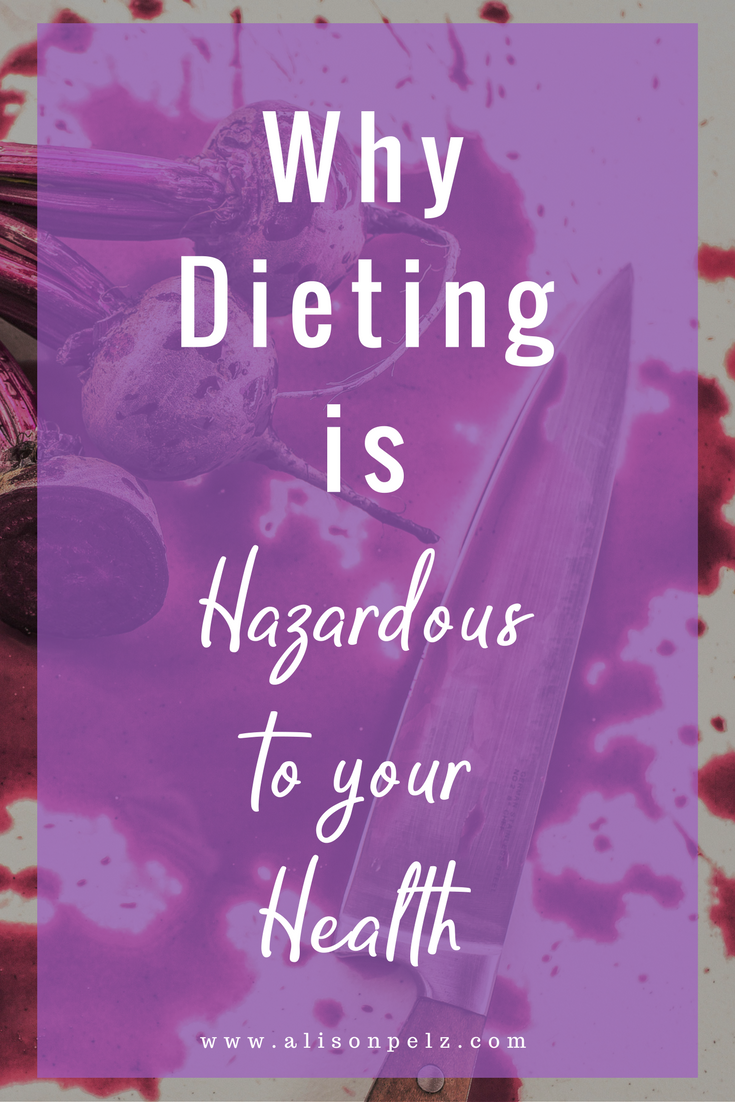We are knee-deep in the diet culture. Messages about what we should and shouldn’t eat are everywhere: social & print media, TV, on food labels and even well-meaning friends and family.
We forget that food is necessary to survive. Food is not optional. Dieting makes us think we can go without carbohydrates, fats or other food groups. But, we just can’t. Food and eating are not about willpower, it is about biology.
Dieting leads to food preoccupation
The most basic function of our brain is to keep us alive. When our basic needs are not being met, our bodies experience stress. Our brain sends us alerts to get us what we need. Most diets aren’t sufficient in energy (calories) or macronutrients (carbohydrates, protein & fat). Therefore, our brains alert us that we need to eat.
Sleep is another example of a basic need, one we can all relate to. Like most new parents, I was sleep deprived after having my first child. I remember vividly waking up, after getting only 2-3 consecutive hours of sleep, and one of the first things I thought was “How can I find the time to nap today?”. My brain was sending me messages that I needed to get more sleep.
What if I told you “Today you can only pee twice”. Crazy, right? If you actually attempted to only urinate twice you may find yourself doing some unusual things such as restricting your fluid intake and most likely your mind would be consumed with whether or not you could “hold it”. Just like sleep and other bodily functions, feeding ourselves is a biological drive & need.
What research says about caloric restriction
Studies show when people are dieting preoccupation with food increases. If you are a chronic dieter or have an eating disorder you are very familiar with food preoccupation.
Researchers, Dr. Ancel Keys & Dr. Josef Brozek, in their landmark study, called the Minnesota Starvation Experiment of 1944 studied the psychological and physiological effects of starvation and famine.
The protocol of the study was to feed study participants for 3,200 calories per day for 3 months, then a “semi-starvation” diet of 1,570 calories per day for 6 months and lastly during the “rehabilitation” phase allowing participants to eat as much as they wanted.
You read it right. Semi-starvation of 1570 calories per day. Many modern day weight loss diets restrict calories to much lower levels.
Psychological effects of the semi-starvation diet
Keys and Brozek documented the effects of the lower calorie diet on the study participants. Results showed:
→Increase thoughts about food including “food obsessions, dreams, and fantasies”.
→Increase reading & talking about food.
→Fatigue.
→Irritably (Often referred to as “hangry”)
→Depression.
Some of the physical results of the semi-starvation period showed a decrease in strength & stamina, body temperature, heart rate & sex drive. Three of the 40 participants were disqualified from the study because they couldn’t follow the semi-starvation diet. “Extreme overeating” was reported by many of the men during the rehabilitation phase in which they had access to as much food as they wanted.
Tips for working with your biology, instead of against
- If you have an eating disorder, get treatment. Eating disorders require treatment for recovery. If you are not sure if you have an eating disorder take this quiz.
- Feed yourself regularly.
- Eat meals that consist of carbohydrate, proteins, and fats.
- Ditch the diet (This is a tough given we live in a diet culture).
- Read books like Intuitive Eating & Health at Every Size.
Need help with ditching the diet? Call me for a free phone consultation at (512) 293-5770 to learn more about how I work clients.


